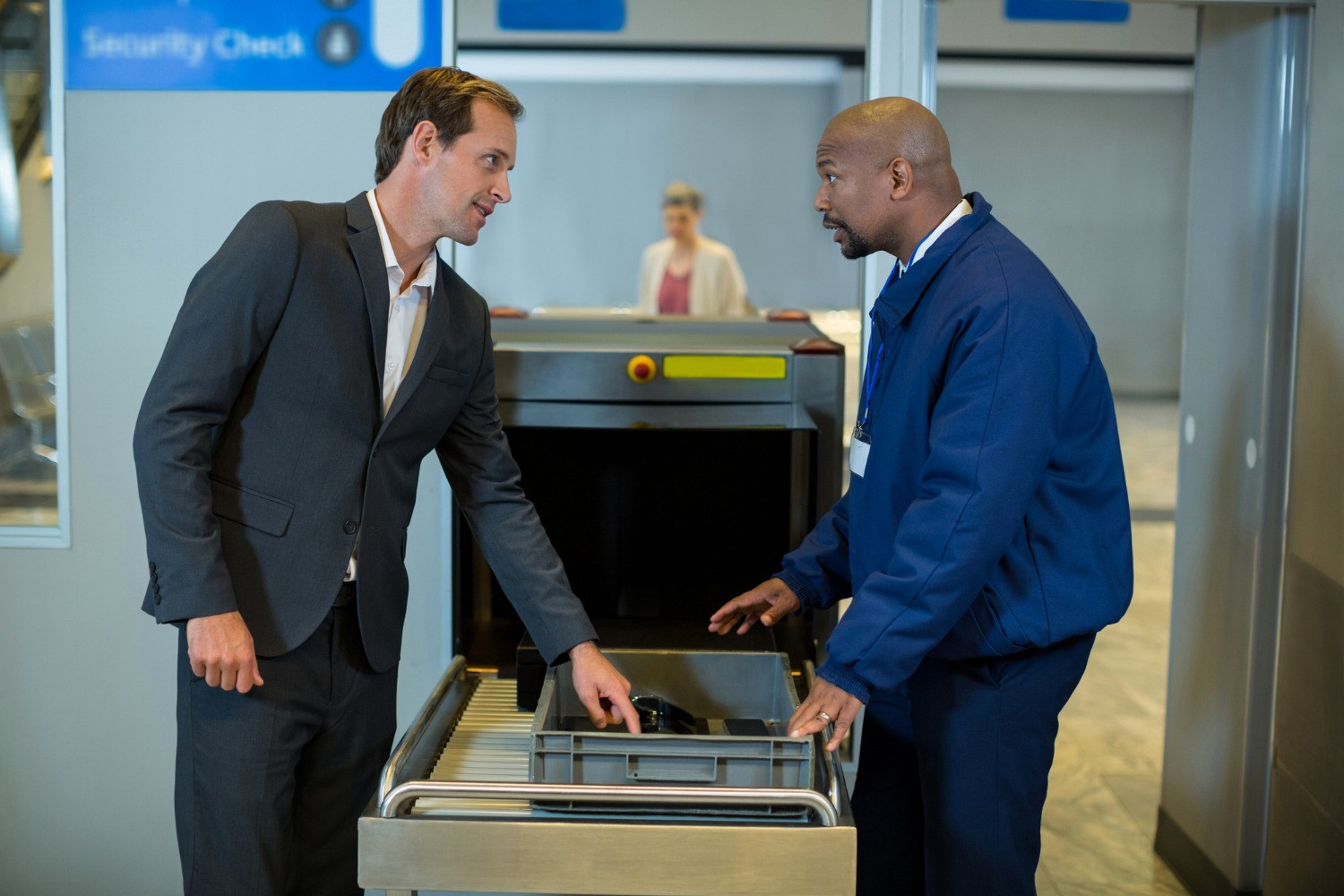1. Anticipate booking : documents and registration
The less friction you cause before arriving at the airport, the smoother the check-in process will be. In practice, check in online (when available) and keep your boarding pass on your mobile and in a backup PDF version (useful if the connection weakens).
On the Chalair network, online check-in is available on several departures (Paris Orly, Aurillac, Castres, Brive, Limoges, Lyon, Brest), from 48 h to 2 h before the flight: a real time-saver at the terminal.
Tip: check your terminal and the checkpoint closest to your door in advance.
2. Pack your cabin bag like a pro and avoid being searched
A rapid inspection is first and foremost a well-prepared tank.
The essential rules to know in France :
- Liquids, gels and aerosols: 100 ml containers max., packed in a 1-liter transparent resealable bag (one bag per passenger). Present this bag outside your baggage at check-in. Exceptions for babies, medicines and special diets.
- Prohibited objects: blades > 6 cm, tools, flammable substances...
As far as airlines are concerned, remember to respect the dimensions and weights indicated. With Chalair, one piece of cabin baggage (55 × 35 × 25 cm, max. 10 kg) + one accessory (30 × 40 × 15 cm, max. 2 kg) are included.
🎯 Minute routine before the check:
- Take out your bag of liquids and your computer and/or tablet.
- Empty your pockets (keys, coins, phone), remove your belt and metal objects.
- Place your jacket and large accessories in the bin.
- Lay the computer flat, hood up, without cover, to speed up reading.
3. Choose the right lane and keep the pace
Airports often offer dedicated lanes (families, priority, reduced mobility...): look out for the signs and follow staff instructions. In Paris airports, the PARAFE (e-gates) system can speed up border control for holders of biometric passports.
It's simple, but vital: move forward continuously, bins ready, handles facing forward, electronics grouped together. The aim of the inspection is to clearly read the contents. Any unprepared item (bottle >100 ml, computer at the bottom of a cluttered bag) leads to a manual search, and you immediately lose precious minutes.
4. Adjust your timing (neither too early nor too late)
For domestic flights, allow 1 to 2 h in advance, depending on the season and traffic. For long-haul flights: up to 3 h.
Arriving early doesn't mean waiting in the wrong place: locate the right counter/terminal, check in if necessary, then go straight to check-in.
5. Adopt smart gestures that make a difference
- Hydration: take an empty water bottle and fill it up after the checkpoint (without wasting time at the search for a bottle >100 ml). Practical and eco-responsible(remember: buy your drinks after the checkpoint if you don't have a bottle).
- Scan-friendly outfit: shoes easy to remove if required, little metal, belt fitted at the last moment.
- Computer and tablet accessible at the touch of a button.
- Zero surprises: reread the official list of prohibited items (tools, blades >6 cm, flammable materials), and the battery regime.
Going fast means preparing early, lightening the load at the bins and keeping pace with the control station. Keep a reasonable margin, anticipate the 100 ml rule, and capitalize on online registration.
Image Freepik

